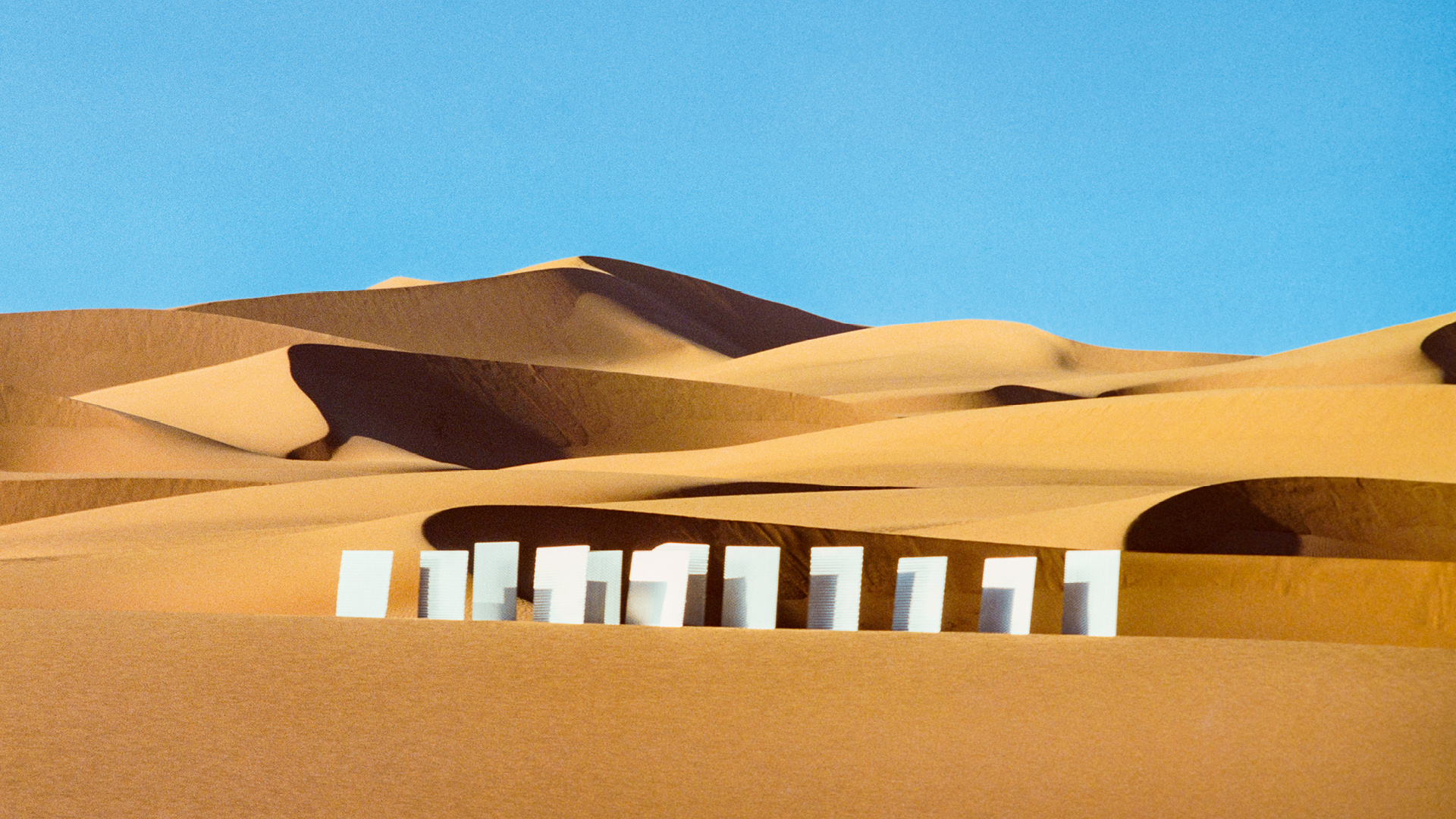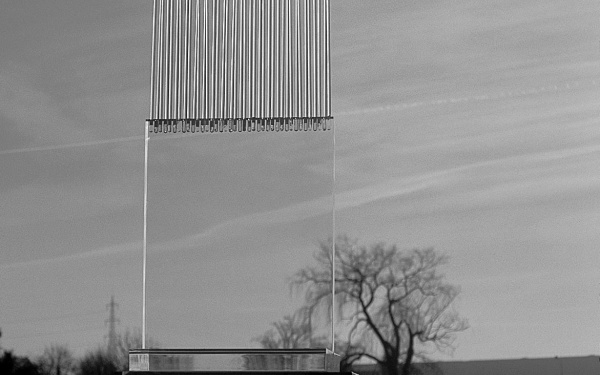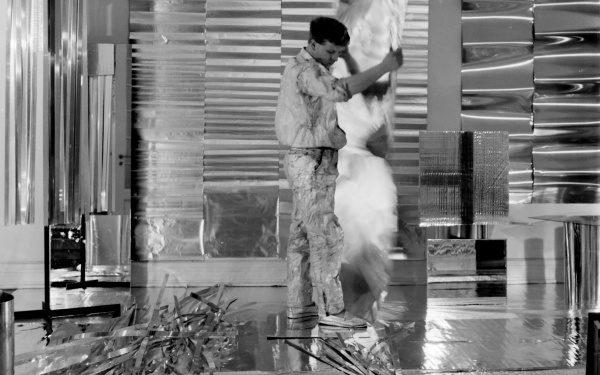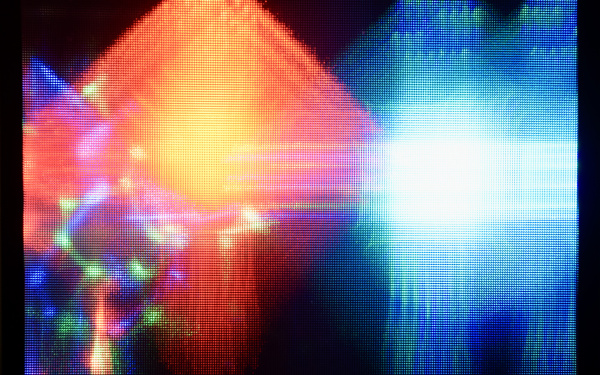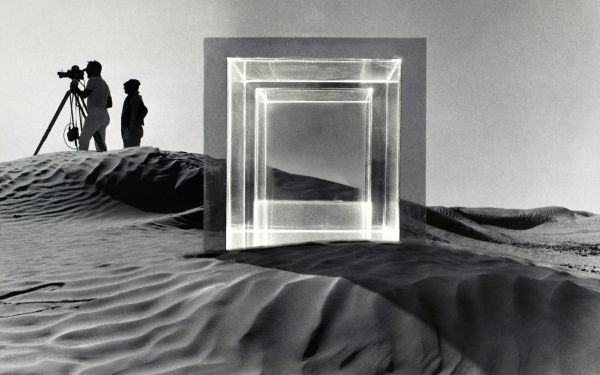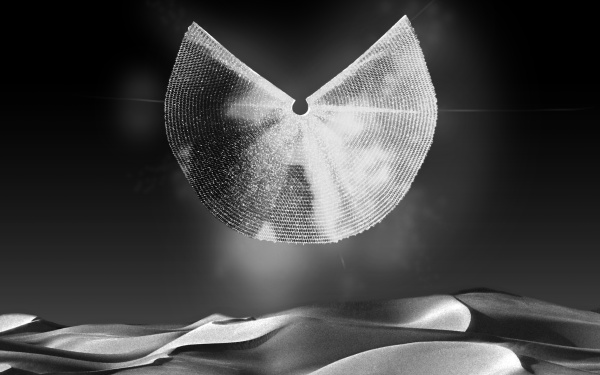Mack at ZKM
Sat, September 16, 2023 – Sun, April 14, 2024
- Location
- Atrium 8+9
Mirror objects in the glaring desert sun, shimmering color prisms in the Arctic, light-reflecting stelae, magically vibrating rotors, gold and silver gleaming cubes, virtual volumes generated by electrical impulses: Heinz Mack, artist of light, illuminates the atriums of ZKM in a variety of ways.
New Materials, New Means of Artistic Expressions
As early as the 1950s, Heinz Mack was looking for harmony between humankind, nature and technology. In 1957 he founded the group ZERO with the artist Otto Piene in Düsseldorf. Together with other international artists, they wanted to revolutionize art after the Second World War. ZERO is about a new beginning – a zero hour. Light, movement, structure and color are central to Mack’s body of work.
He used natural elements such as light, fire, air, water or sand as a fully-fledged creative means of expression for his works of art early on. Working with kinetic principles and new industrial materials such as aluminum, acrylic glass, or Fresnel lenses, as well as chemical substances such as phosphorus and mercury, he revolutionized the concept of sculpture. His open works directly involve not only the space, but also the viewers, as they interact with light in unique ways that expand perception.
Light in All Its Facets: Mack at ZKM
The exhibition »Mack at ZKM« explores some of the lesser known thematic components from the various phases of Mack’s artistic career. Some works that have only rarely been exhibited and parts of which have been lost are now being reconstructed or newly staged at ZKM. Among them, for example, is the »Light Choreography«, a composition comprising various works by Mack, some of them motor-driven, presented for the first time in this way, which creates a multisensory, immersive experience that makes light and space vibrate, literally making them dance. Space and time also seem to dissolve in the »Sahara Project«, which has been a fixed point in Mack's work since 1959, making him a pioneer of Land Art in Europe. Again and again, the artist traveled to the desert, which, thanks to its boundless expanse, offered ideal conditions to manifest light in its purest form. On a large sand surface that almost fills Atrium 9, the light phenomena that arise from the interplay of Mack's light objects and the glaring desert sun are made comprehensible in the museum context. The »Sahara Project« is also one of the first works in European art to be conceived in terms of media, as Mack's interventions lasted only for the duration of documentation in photographs and on video, which were then made accessible to the public as well as in the film »Tele-Mack«.
Mack in the 21st Century
The exhibition »Mack at ZKM« is ultimately also about transferring the artist's line of inquiry into the 21st century, into the Anthropocene. After all, the engagement with the elements of air, water, light, and sand also ties in with current problems concerning our threatened natural resources. Thus, his large reflector walls and extensive plantation of lamellae, which he conceived 65 years ago, anticipate contemporary photovoltaic systems as found today in deserts. Mack's artistic approach to nature and technology raises questions and also offers possible solutions, particularly in view of the challenges posed by the humanmade climate catastrophe that we are facing.
Ralph Goertz and Werner Raeune: HEINZ MACK / Licht – Bewegung – Farbe (Trailer)
Imprint
- Curator
- Curator
Team
Katharina Kern (Curatorial assistance)
Cornelia Eisendle, Vivien Ranger (Project assistance)
Andrea Hartinger (Technical project management)
Matthias Gommel (Scenography)
Marlies Peller, Leonie Rök (Conservation)
Regina Linder (Registrar)
Andreas Brehmer (Digital production)
Ulrike Havemann, Gloria Custance (Copy editing)
Demian Bern (Graphic design)
Staff members across all departments of the ZKM | Karlsruhe
With special thanks to
Heinz Mack, Ute Mack, Sophia Sotke and the entire studio Mack, the lenders, the ZERO foundation and the friends of the ZERO foundation
In memory of
Peter Weibel (1944–2023), on whose idea of this exhibition is based
